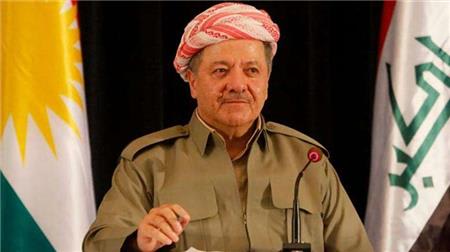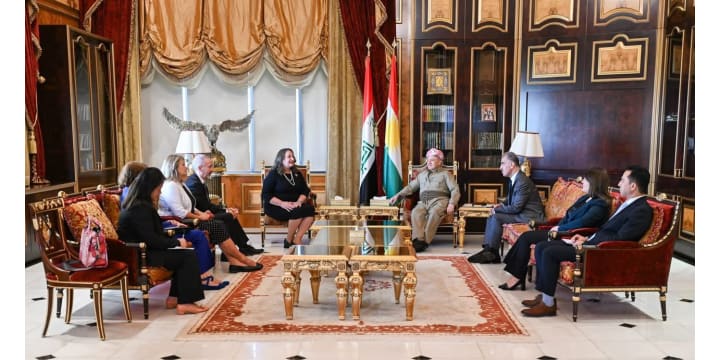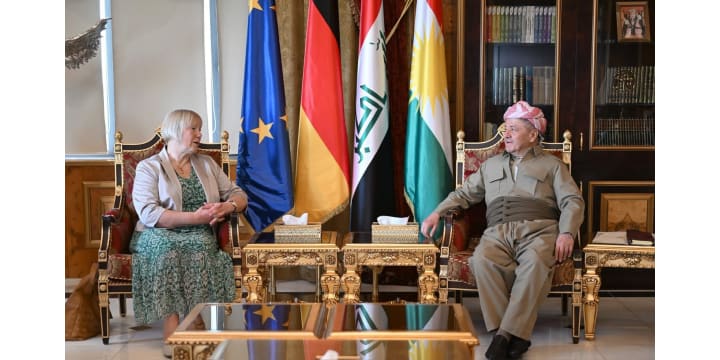
Masoud Barzani hails unity of Kurdistan Region and Iraq, following Allawi’s withdrawal as prime minister-designate
Masoud Barzani, President of the Kurdistan Democratic Party (KDP), issued a statement affirming that Iraq was now in an unprecedented stage which can “secure the appropriate ground for a comprehensive national consensus and unity between all parties.”
Barzani’s message came following the announcement of Iraqi Prime Minister-designate, Mohammed Tawfiq Allawi, that he was withdrawing his candidacy, after failing to win parliamentary approval for his cabinet.
A Shiite, Allawi pursued a sectarian agenda, and he failed to win the support in parliament of Iraq’s Kurds and Sunni Arabs for the new cabinet that he had named.
In his statement, Barzani stressed the importance of Kurdish unity, along with coordination between Kurds and Arabs, to secure a fairer, better, and more representative government in Baghdad than what Allawi would have delivered.
“I would like to express my thanks and appreciation to all the Kurdish political blocs that unanimously expressed their position in regard to the vote of confidence in the new Iraqi government, despite their differing views,” Barzani stated, adding, “The manifestation of this unified position is appreciated, as it is a historical gain for the people of Kurdistan.”
Barzani also extended his thanks to the Iraqi political parties “which have prevented, with their correct logical positions, the escalation and increase of the crises that Iraq is facing and its slide towards calamity.”
“The position of the political parties was an act of obligation towards democratic principles, and consideration towards the demands of all Iraqi components in amending the path of Iraq’s political process,” he affirmed.
Barzani concluded by stating that Iraq, at this point, can now rectify the political processes which led it into the recent crisis saying, “Now, Iraq stands before a new stage, in front of an opportunity to achieve the legitimate demands of the demonstrators; provide the appropriate ground for a comprehensive national consensus; and ensure convergence among all parties.”
Iraq has been marked by protests, ongoing since October, against government corruption, poor services, and high unemployment. In response, Adil Abdul Mahdi, who was chosen prime minister following the 2018 elections, resigned in late November.
It then took a full two months to name a replacement. On Feb. 1, Iraqi President Barham Salih designated Allawi as the next prime minister. But as Allawi has now stepped down, Abdul Mahdi will continue as caretaker prime minister.
Washington was sensitive to the sectarianism that Allawi represented. Last week, Secretary of State Mike Pompeo spoke with Allawi. It was Pompeo’s first—and only—conversation with the prime minister-designate.
Notably, Pompeo did not congratulate Allawi on his nomination, as might have been expected. Rather, he urged Allawi “to resolve differences with Iraq’s Kurdish and Sunni political leaders to assure success in pursuing the vital tasks faced by his government,” according to State Department Spokesperson, Morgan Ortagus.
The US stance marked a significant departure from that of the Obama administration and the first years of the Trump administration, during which it essentially continued the policy of its predecessor toward Iraq.
In that period, Washington was generally accommodating of Iraq’s Shi’a politicians and their principle backer, Iran. That, however, appears to have changed

